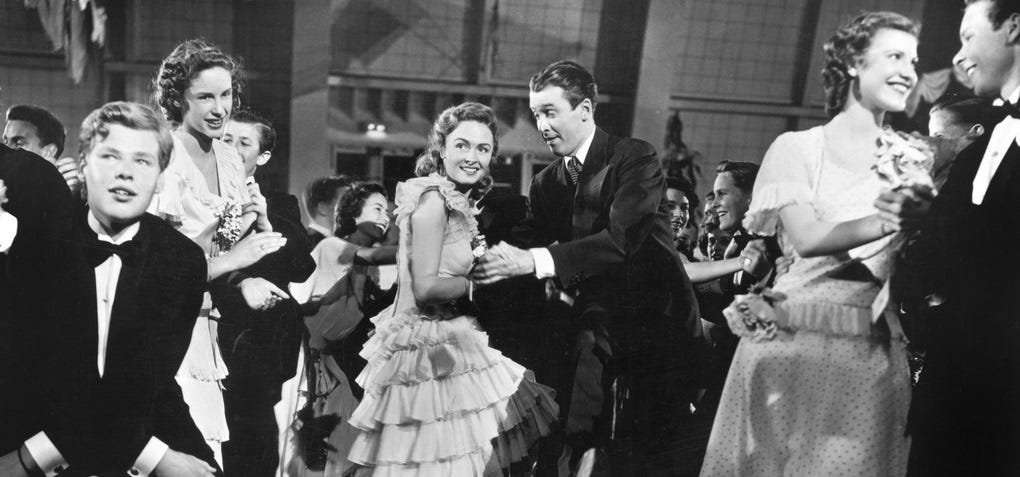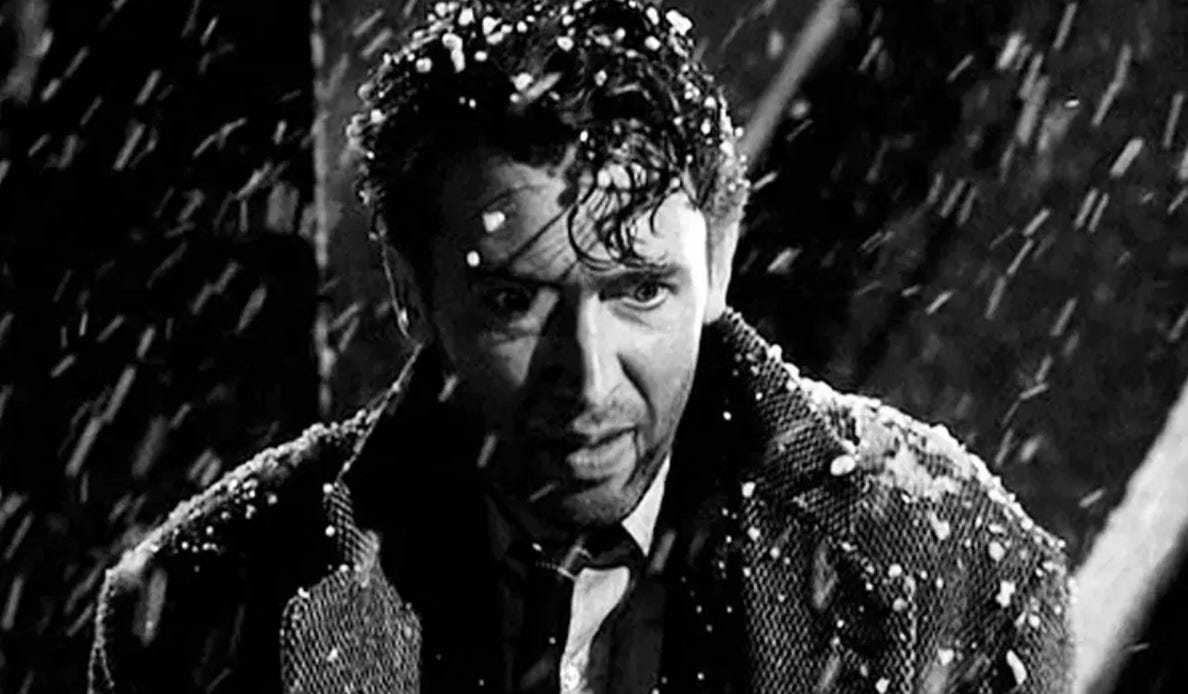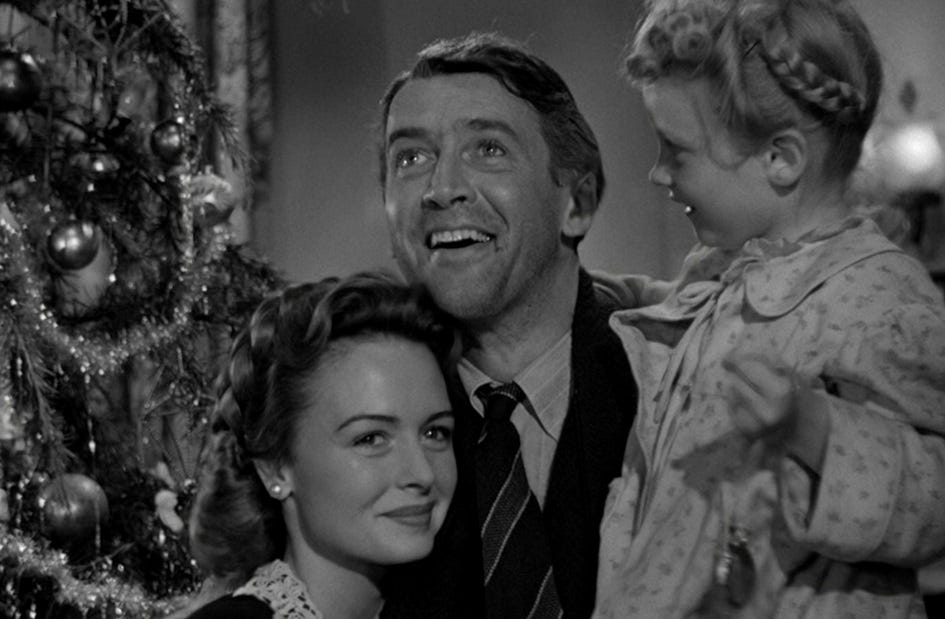2022 was the Year That Substack Saved my Life
The world doesn't owe any writer success. But man, I needed a win. And this past year, Substack gave me one.
I really hate it when professional writers publicly complain about how hard their profession is.
It’s difficult to get people to publish or produce your beloved novels or screenplays? Or pay you to put on your plays? Or travel the world and write about what you see?
Well, duh! Of course it’s hard! It's like complaining about how hard it is to make it in a rock band, or be a comedian, or become a famous movie or TV star. These are all things people do for fun — things most of us would do for free.
If you’re trying to make a living doing incredibly fun and satisfying things, there’s obviously going to be an insane amount of competition for that gig.
That said, well, it is hard to make a living as a writer.
I hope what follows doesn’t make me a hypocrite. Trust me, I’m going somewhere with this.
I’m in my 50s, and ever since Michael and I started nomading, my life has personally been the best it's ever been. It’s really not even close.
But professionally? As a writer?
Well, I’ve been making my living as a writer for several decades now, and the good news is that I have a terrific new literary agent who is now shopping two of my novels. And I currently have five screenplays in development with a bunch of different producers — all passionate and fantastic.
But my agent hasn’t actually sold either of those novels to a publisher yet. And none of those producers have secured any movie deals either.
In fact, it’s been years since I’ve had any real good news on the screenplay or novel-writing front — or, ahem, made any real money.
With my novels and screenplays, I think I’m doing far and away the best work I’ve ever done, but I also really do know how intense the competition is. I’m fully aware that none of these projects may ever go anywhere.
In other words, in contrast to my personal life, my writing career is now just about as bleak as it’s ever been.
Enter Substack.
A couple of years ago, I suddenly started seeing references everywhere to this weird new platform, and it sounded interesting. I was very skeptical that anyone would actually pay for online content, not after decades of “freemium” stuff. And a newsletter, no less?
But Michael and I had been writing about our travels already, and my previous agent hadn’t been able to sell our travel memoir to any traditional publishers. Would it have made a difference if Michael and I were younger? Or if we’d had a bigger existing social media platform?
Maybe, but that’s a rabbit hole I try not to go too far down.
Need travel or international health insurance? We recommend Genki or Safety Wing.
For a travel credit card, get 80,000 free miles with Chase United, or get 60,000 free miles with Chase Sapphire Preferred.
Using the above affiliate links will cost you nothing and help support our newsletter.
We considered posting our memoir on a content website. After all, many of our travel buddies and/or writer friends have had success with niche content sites.
But chasing the SEO beast seemed a bit out of our bailiwick, and it also felt like we were a bit late to that particular party.
Meanwhile, Substack seemed eerily well-suited to our strengths. After all, we’re writers, not Instagram thirst-trappers. We’re not podcasters either. And, unlike most other social media, Substack at least had a theoretical way to monetize our writing.
So Substack, it was.
A couple of months after our soft launch, we turned on our paywall — and a bunch of people immediately signed up for paid subscriptions.
“That’s sweet of our friends, isn’t it?” I told Michael.
But people kept signing up — people we didn’t personally know.
And now, sixteen months after we turned on the paywall, we’ve made more money than probably any advance we might have gotten from a traditional publisher.
The response to our writing has been incredibly gratifying — not just the paid subscriptions, but the free ones too, and the shares, and all the comments and emails.
The petty side of me sometimes thinks, “See! There is a big market for what Michael and I have to say! Those publishers made a big mistake rejecting our memoir!”
But the truth is, I’m now glad our memoir got rejected, and it’s not just about the money. I know exactly how the traditional publishing system works. In the end, our writing would have been at the mercy of some massive publishing house, who may have been fantastic partners in the distribution of our work — or they may have lost all enthusiasm by the time our book was finally released.
I’ve traditionally published ten novels. By the time of their release, eight of them had been “orphaned” — which meant the acquiring editor was no longer with the company. Trust me when I say that’s not good for a book.
But with Substack, Michael and I now have a platform — and an ongoing revenue source — that we control. For the first time in my writing career, I’m completely in charge.
This is a little scary, because it means if I fail now, it’s entirely mine and Michael’s fault.
On the other hand, Michael and I haven’t failed.
Writing a travel newsletter wasn’t exactly my career dream. I definitely haven’t given up on my novels and screenplays. Remember my awesome new agent and those great movie producers?
But this has still been the single most satisfying writing experience of my life so far.
The truth is, I think Michael’s and my success here at Substack is about more than just the particular work we’ve been doing. I think this platform rose almost perfectly to meet this exact moment in cultural time.
First, I think people have become very, very tired of the toxic and/or superficial nature of most social media.
In retrospect, this all seems inevitable to me. When you finance your online media solely with ads, not subscriptions, and when the only measure of success is clicks and “engagement,” of course you’re going to encourage bad behavior. That’s a race directly to the bottom of the media barrel.
Consciously or subconsciously, I think a lot of people understand this now, and they’re hungering for better content — for something deeper and richer.
But this is only half the problem. At the same time social media failed, I think traditional media failed too.
My take is that conservative media have mostly been a lost cause since the late 90s — a frightening amount of one-sided, bad-faith reporting brimming with deflection and spin. And on the opinion side, it’s mostly just grievance and gossip, along with heavy doses of trolling, gotcha!, and whatabout-ism.
I used to think the “liberal,” mainstream media were much better. Despite their flaws and many mistakes — Iraq, Hillary’s emails, Piers Morgan — I thought they at least aspired to something higher-minded.
Then, in the wake of the debacle of the Trump presidency and the George Floyd protests, came the idea that journalism should have “moral clarity” — that there’s no such thing as “objectivity,” and “neutrality” is for fools. Reporters should boldly proclaim “the truth,” calling a lie a “lie,” and calling out racism and sexism wherever it’s found.
This sounds great in theory. Who doesn’t want “the truth”? And I’m as tired of “false equivalence” as anyone.
Alas, this new style of journalism has mostly been a disaster. It turns out “the truth” isn’t always clear-cut. Indeed, figuring out “the truth” is always ongoing — and also kind of the whole point of journalism.
In fact, last year, even Substack was briefly sucked into the “moral clarity” vortex when a couple of disgruntled writers tried to destroy the site by inaccurately claiming — “lying,” if you will — that the site was subsidizing “hate speech.” At worst, the site was simply allowing right-leaning writers to use the platform.
Which makes sense to me. The last thing I want in my media is only a single point of view — or an atmosphere where certain orthodoxies can’t even be questioned. But that seems to be where the mainstream media are heading on a whole host of hot-button issues.
I still think there’s a ton of great “mainstream” journalism going on, and the pendulum is almost certainly swinging again. But I don’t think I’m the only one feeling frustrated by dogma and unquestioning militancy all across the political spectrum.
I think that’s why so many writers are ending up at Substack, where long-form is encouraged and where outrageousness rarely lands. Here readers seem to me to reward the thoughtful and complex, not the obnoxious or perpetually outraged and aggrieved.
It’s a rare thing in life when your personal ambitions seem to line up with some greater cultural trend.
It first happened to me back in the 00s, when Michael and I co-founded a website called AfterElton.con (with our good friends, Sarah Warn and her wife Lori). Before we knew it, we had tens of thousands of readers, and we were purchased by Viacom/MTV, which kept us on as editors for five more years. That gave us even more exposure and access.
Our beat was LGBTQ representation in entertainment. Little did we know that the world was about to undergo an massive, revolutionary cultural shift on LGBTQ issues.
Then again, I think our founding that website and working our asses off for seven years contributed to that massive cultural shift.
To me, Substack right now feels like something very similar — like it’s a corrective to several deep societal deficiencies.
“We started Substack because we believed it was important to offer writers and readers a way out of the media systems that were serving them poorly,” says Hamish McKenzie, Substack’s co-founder. “We wanted to show that there can be something better than the attention economy, the incentives of which were leading to the types of content and behavior that corrode trust and comity; that turn readers into mindless doomscrollers; and that strip writers of their financial dignity.”
He might as well be talking about me: my exact experience here at Substack and how it, well, kind of saved my life. I said before that it’s almost impossible to make money doing what you love — say, writing whatever you're most passionate about.
But it’s not impossible. That’s the incredible thing I learned in 2022.
So as this year comes to a close, I thank Substack, but I also thank you, our readers, for joining Michael and me as we travel all the places we’re going.
And thanks also for reminding me that this really is — or can be — a wonderful life.
Brent Hartinger is a screenwriter and author. Check out my new newsletter about my books and movies at www.BrentHartinger.com.










It's funny how blogs were so hot for a while, then (mostly) crumbled in the face of social media that had more of an emphasis on pictures, GIFs, short posts, and reposts.
Yet there's obviously a hunger for the longer form, blog-style post, as Substackers are discovering ...
So very much with you on this, Brent.
I also see Substack, and the newsletter subscription model as a whole, as a corrective for the stuff I was seeing in blogging, circa 2012-ish: approaching-100% reliant on advertising, plus sponsorships and PR handouts and the rest of it, turning reader attention from a mutual source of empowerment into a tradable resource, a virtual currency made of eyeballs (what a horrifying thought) that you could maybe, maybe exchange for actual money at some point? Maybe? So, this all feels like a rebalancing, a simplifying and - a de-hoodwinking? I don't quite know what to call it - I just know it's making people happy (myself included) in a way I hoped blogging would.
Also? Thank you to you & Michael for your generosity of spirit and your open-hearted work ethic with all this stuff. It has made a big difference to so many, and it's appreciated.
But I'll call you out on one thing. Writing is actually easy. EASY. It's SUUUUPER easy. And I say this because I have something I'm procrastinating on starting to write, and the only thing that will actually finally get me started on it this evening with the deadline quickly approaching is the knowledge that actually writing is easy and I will be finished in, oh I dunno, ten minutes? Maybe less. It'll be a breeze. But if writing was *hard* - like literally all the other times I've done it, which I'm refusing to think about right now - then I'd never even start. I'd just watch Netflix while rocking back and forth. So writing's easy. Nothing easier. OK?
Thanks.